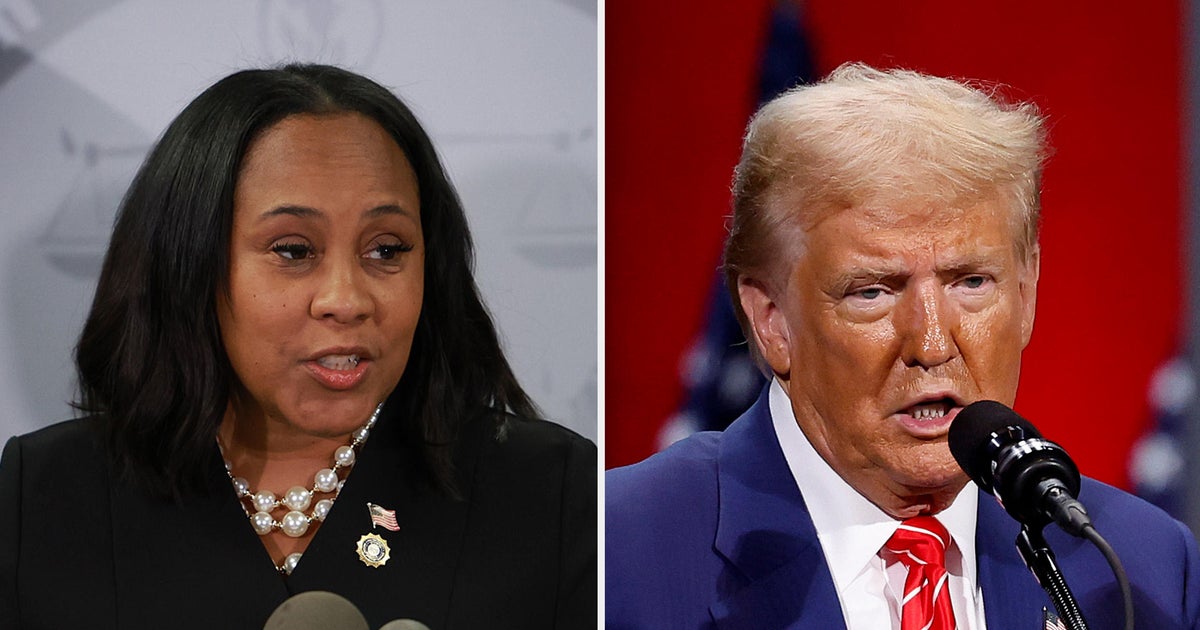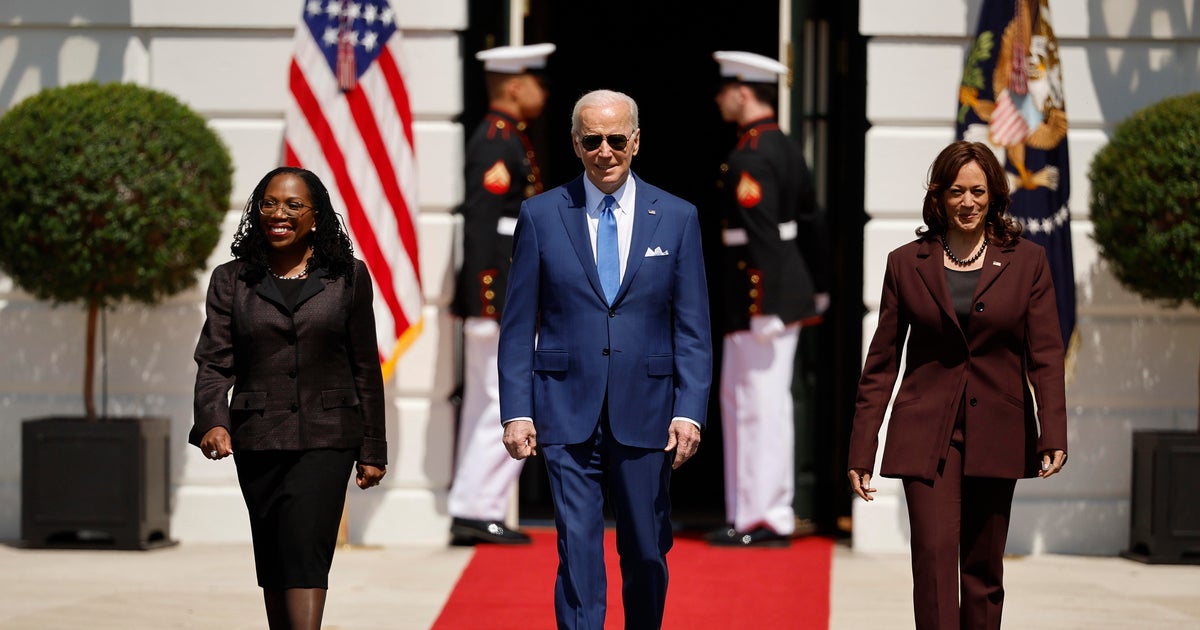Will Iowa caucuses predict the Democratic nominee? In 7 of the past 9 contested Democratic races, it did.
Iowa Democrats will caucus Monday night, and the nation will finally learn the results of the first nominating contest of the 2020 presidential campaign. The Iowa caucuses are always closely watched and exhaustively analyzed — but how often do they accurately predict which candidate will be the eventual nominee?
A look at recent political history shows Iowa voters often pick a winner — but not always.
1976: Carter wins Iowa, nomination & presidency
In 1976, no candidate got a majority in the Iowa Democratic caucuses, with 37.2% voting "uncommitted." But Jimmy Carter was the candidate with the most votes, receiving 27.6% and ultimately becoming the party's nominee. President Gerald Ford, who ascended to the presidency in 1974, after President Nixon's resignation, faced a substantial primary challenge from the former California governor, Ronald Reagan. He was able to beat Reagan in a close race in the Republican Iowa caucuses and went on to become his party's nominee, but Reagan's challenge weakened Ford's candidacy. The Democratic nominee with the largest share of support in Iowa was ultimately the Democratic nominee, and the Republican nominee was correctly predicted.
1980: Carter wins Iowa & nomination, loses presidency
Jimmy Carter, now the incumbent president, won the Iowa Democratic caucus and his party's nomination, despite a challenge from more liberal Senator Ted Kennedy. On the Republican side, George H.W. Bush won the Iowa caucuses over Reagan, but Reagan ultimately won the nomination. Reagan chose Bush as his running mate, and they trounced Carter in November.
1984: Mondale wins Iowa & nomination, loses presidency
Iowans voted for former Vice President Walter Mondale in the 1984 Democratic caucus and he later became the party's nominee. President Reagan, the incumbent, ran unopposed, so the Republican caucuses that year were not held.
1988: Gephardt wins Iowa, loses nomination
Neither Massachusetts Governor Michael Dukakis, who was the eventual Democratic presidential nominee, nor Republican Vice President George H.W. Bush, who won the presidency, won the Iowa caucuses. In 1988, Iowa Democrats chose Congressman Richard Gephardt and Republican caucus-goers chose Bob Dole. So Iowa's vote that year was not indicative of the final nominations for either party.
1992: Harkin wins Iowa, loses nomination
Bill Clinton, who ended up being the Democratic nominee and president, did not win the 1992 Iowa caucus. Instead, Iowa Democrats backed their home-state senator, Tom Harkin.
1996: President Clinton unopposed in Iowa
President Bill Clinton was the incumbent and ran unopposed among Democrats. On the Republican side, Iowa selected Senator Bob Dole, who went on to win the nomination.
2000: Gore wins Iowa & nomination, loses presidency
Al Gore won the Democratic caucus and George W. Bush won the Republican caucus in 2000, and both men went on to the be the nominees of their respective parties. So, Iowans did correctly predict who would be the two parties' candidates that year.
2004: Kerry wins Iowa & nomination, loses presidency
John Kerry won the Democratic Iowa caucus and later became the party's nominee. George W. Bush, the incumbent president, ran unopposed on the Republican side.
2008: Obama wins Iowa, nomination & presidency
In 2008, Illinois Senator Barack Obama beat both New York Senator Hillary Clinton and North Carolina Senator John Edwards in the Democratic Iowa caucuses. She came back to win New Hampshire, but Mr. Obama finally clinched the party's nomination. On the Republican side, former Arkansas Governor Mike Huckabee won in Iowa, but Arizona Senator John McCain, who came in fourth in the Iowa caucuses, became the Republican nominee.
2012: President Obama unopposed in Iowa
As the incumbent, President Obama was unopposed on the Democratic side. Former Massachusetts Governor Mitt Romney, now a Utah senator, won the 2012 Republican Iowa caucus, which was indicative of what was to come: Romney became the party's 2012 nominee.
2016: Hillary Clinton wins Iowa & nomination, loses presidency
Hillary Clinton eked out an extremely narrow victory over Bernie Sanders in the 2016 Democratic Iowa caucus, and eventually won her party's nomination. The former secretary of state won 49.9% of Iowa's delegates and the Vermont senator won 49.6%.
Republican Senator Ted Cruz beat Donald Trump in the 2016 Republican Iowa caucus, but Mr. Trump, of course, clinched the nomination, meaning Iowa voters did not accurately predict the winner of the party's nomination in this case.
Iowa's track record
In the past 11 presidential races, the Iowa Democratic caucus correctly predicted the Democratic nominee seven times. Iowa was only wrong about the Democratic nominee twice. (Two times, an incumbent was running, so there was no Iowa race.)
So, in seven out of the nine contested Iowa Democratic caucuses, the person who won Iowa became the party's nominee.
The Republican caucuses in the state have not predicted the party's nominee as frequently. In the past 11 races, the nominee was predicted by the Iowa caucuses only four times. Three times, an incumbent was running, so there was no Iowa race. So, in four out of the eight contested Iowa Republican caucuses, the state's winner became the party's nominee.
While this year, President Trump technically has two Republican challengers, all eyes will be on the Democratic candidates, who are locked in a tight race.
The final CBS News Battleground Tracker before caucus day shows Bernie Sanders and Joe Biden even in first-choice support at 25% each; Pete Buttigieg very close behind at 21%; and Elizabeth Warren at 16%, also in position to accrue some national delegates. Amy Klobuchar is at 5% in our baseline estimate, and all other candidates are under 5%.
But there is still a lot of uncertainty about the final outcome, since Iowa caucus-goers can change their support if their candidate fails to attract 15% support in the first alignment. Those who back lower-performing candidates may opt to realign with their second choice as the night goes on.




